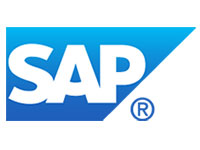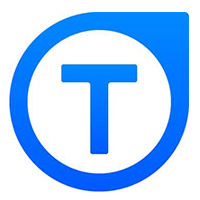
The relationship between CRM vendor and its channel ecosystem has slowly been changing over the last two years, driven by a number of industry trends. Once seen almost as a commodity, a vendor’s ecosystem — its resellers, independent software vendors, systems integrators with certifications for their particular software — have become almost as important to vendors as their customers.
Partner relationships have allowed vendors to push into vertical and mobile markets to an extent they never would have been able if their development efforts remained strictly in house. NetSuite, for instance, has rolled out a huge number of verticals through its partner networks.
In some cases, partners have become competitive differentiators. Salesforce.com’s AppExchange network, for example, is a model that many vendors are expected to replicate in the coming years — if not on such a grand scale as Appexchange, then on a more limited scope.
To be sure, these trends have long been underway. Over the years, companies have released many vertical applications in collaboration with partner companies.
Now, though, vendors are redoubling their efforts and improving the quality of their relationships with partners to an extent not previously seen in the industry.
Early Days
During the early days, when the concept of CRM software began to gain serious momentum, vendors relied on their partner ecosystems to shepherd customers to a successful project completion.
That approach sometimes turned out to be a mistake — if not for the vendor, then certainly for the customer. To be sure, there were long lists of culprits for some of the spectacular CRM project failures during the late 1990s, including vendors that overhyped software functionalities and customers that failed to develop reasonable implementation and adoption plans.
Partners were also sometimes at fault. “There was such a rush to deploy then,” Nucleus Research Vice President Rebecca Wettemann told CRM Buyer. “Some partners were recruited that were not as skilled as they were supposed to be.”
This has largely changed — especially over the last two years as the CRM marketplace has tightened, with no one vendor gaining significant new market share.
Feet on the Street
“Vendors are paying far more attention to their partners than they have before — getting a close handle on their skill sets,” Wettemann said. “This trend is only going to increase in the coming years.”
There are a number of reasons for this state of affairs. For starters, there is the simple fact that more skilled partners and resellers result in more product sales. “It’s become a matter of getting more feet on the street if vendors want to increase market share,” she pointed out.
Then there is the small and mid-sized business (SMB) market, which continues to lure CRM vendors. Signing on quality partners is essential with this customer base, if vendors want to increase market share, Wettemann explained. SMBs tend to have an even stronger allegiance to the partner that helped them implement and integrate the application than to the vendor itself, she noted in a recent report.
Indeed, the SMB constituency has received the greatest focus from vendors interested in revitalizing their partner networks.
Microsoft’s Lead
Microsoft is one example, Wettemann said.
“It has pushed partners to market themselves better and show customers the value they deliver,” she noted. “They have pushed partners to sell on a solutions level, not a tech level, which enables them to go for bigger deals than they ordinarily would.”
Microsoft has been focusing more and more on the skill sets of its partner channel, agrees Gregory Price, director and owner of PKF Texas, a Houston-based consulting firm that has attained Gold Certified Partner status in the Microsoft Business Solutions (MBS) competency.
“In the last year, there has been an increased emphasis by Microsoft on its channel,” Price told CRM Buyer.
“They have not told me this, but I speculate that Microsoft only wants to do business with the best people. The cost of doing businesses with entities that are smaller in scope or less qualified is too much — they want to do business with people who can deliver the quality they can expect.”
Many Skill Sets
Siebel — not traditionally an SMB software provider — launched an initiative to build out its partner relationships in this space in December 2004. Nine months later, the company announced that it had signed on 56 resellers globally in less than a year, including 36 in Europe, 12 in North America, and 8 in Latin America — in addition to another 35 technology alliance partners.
Early this year, Minnesota-based WiseSoft announced it would resell Siebel in the U.S. and Canada with future expansion into international markets.
Unlike many partner or reseller companies, WiseSoft does not plan to limit its vendor relationship exclusively to Siebel. It works with other applications and is looking at reselling other vendors’ products as well, according to CEO Atul Wahi. It is the mark of a good partner — at least from the client perspective — to be conversant with other technologies and products.
“Our clients have a mix of different technologies and different needs,” he added.
In the SMB space, technology is becoming as complicated for firms as it is in the enterprise space. The difference is that the small and mid tier companies cannot afford the enterprise-level systems integrators that their larger counterparts use.
“CRM is evolving so quickly among these firms,” Yacov Wrocherinsky, president and CEO of Infinity Info Systems, told CRM Buyer. “They need to be able to rely on companies that have a mastery of the business in which they are working, as well as the CRM technology itself.”

























































Social CRM
See all Social CRM